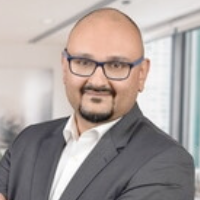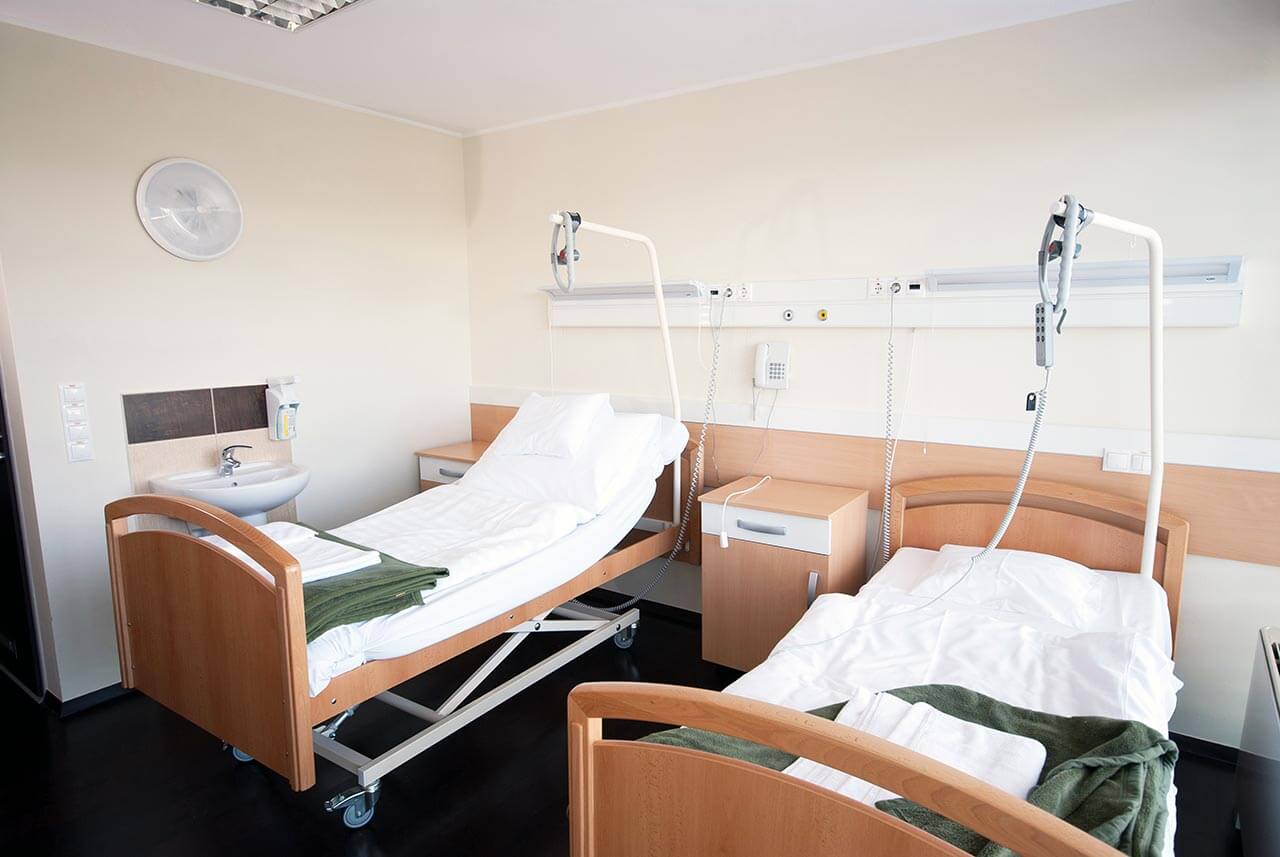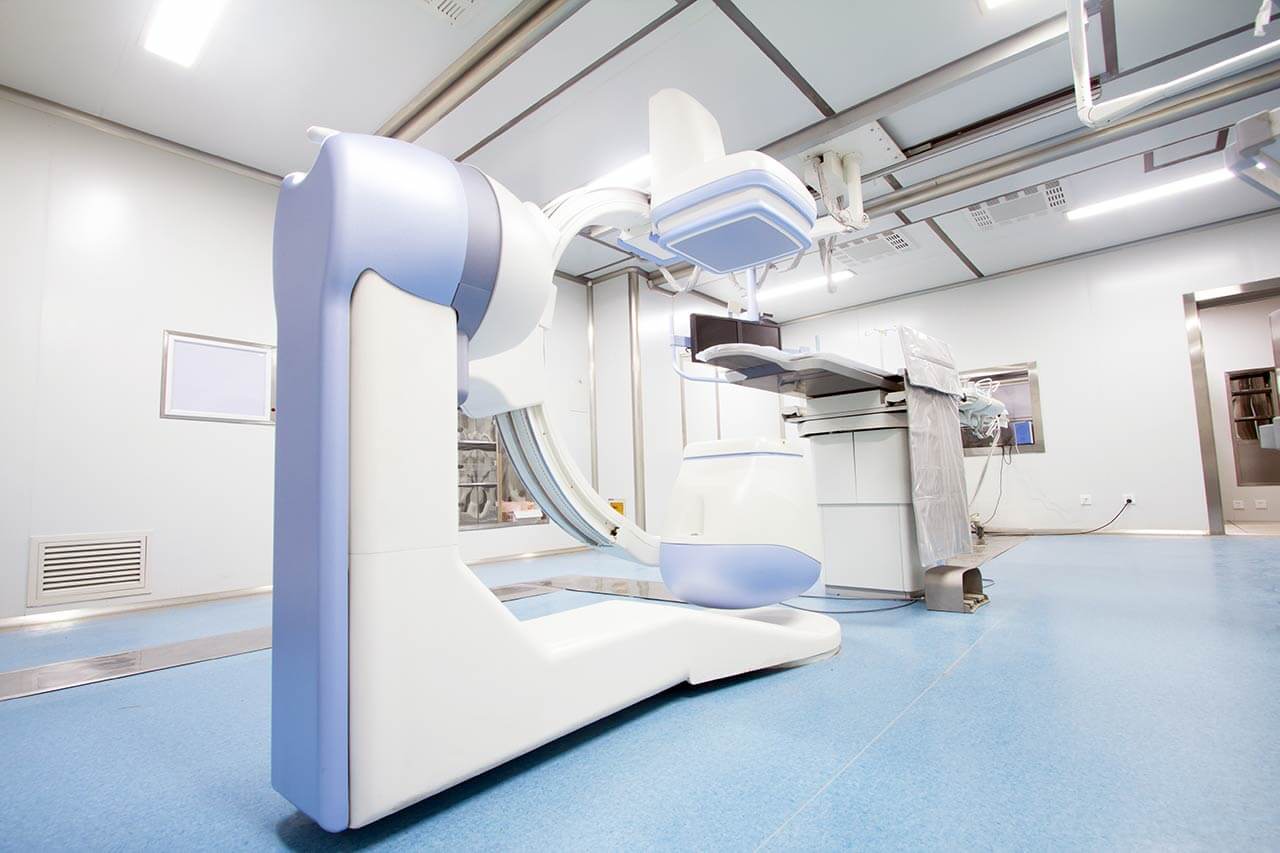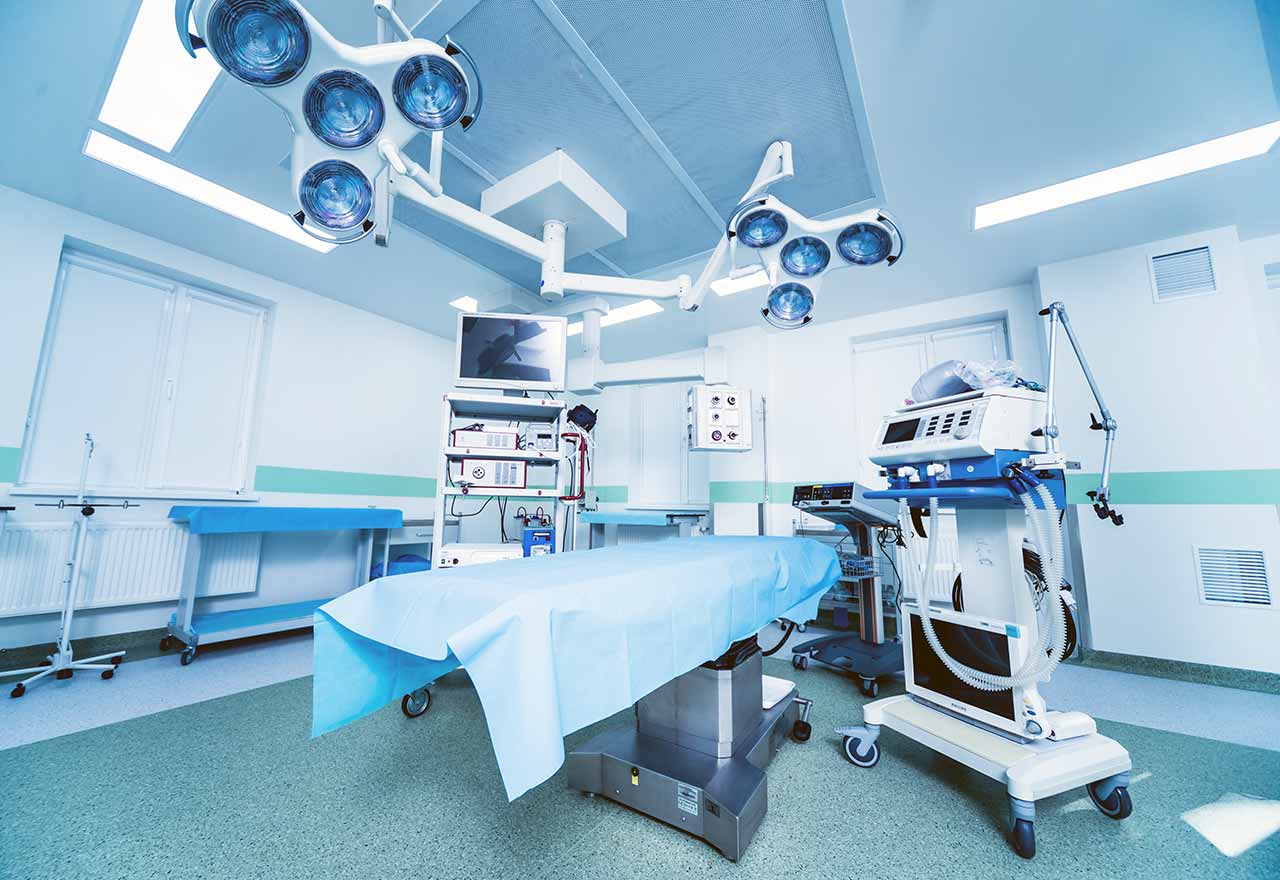
The program includes:
- Initial presentation in the clinic
- clinical history taking
- physical examination
- cardiological examination
- laboratory tests:
- complete blood count
- biochemical analysis of blood
- TSH-basal
- inflammation indicators
- indicators blood coagulation
- measurement of arterial blood pressure
- electrocardiogram
- Holter monitoring (24h)
- echocardiography
- transesophageal echocardiography
- preoperative care
- pacemaker implantation
- symptomatic treatment
- control examinations
- the cost of essential medicines and materials
- nursing services
- full hospital accommodation
- explanation of future recommendations
Required documents
- Medical records
- ECG (if available)
- Echocardiography (if available)
Service
You may also book:
 BookingHealth Price from:
BookingHealth Price from:
About the department
The Department of Cardiology at the Hospital Oberberg Waldbrol provides the full range of diagnostic and therapeutic services to patients with cardiovascular diseases. The department conducts conservative therapy and performs minimally invasive interventions using catheter-based techniques. The medical facility has an advanced Cardiac Catheterization Laboratory specializing in interventional treatment, in which more than 3,000 cardiac examinations and many therapeutic procedures are performed every year. This laboratory is the only one of this kind in the Oberbergischer district. The department is distinguished by its successful experience in the treatment of heart arrhythmias through the implantation of pacemakers and defibrillators. The department's cardiologists also treat coronary artery stenoses and occlusions using transluminal coronary angioplasty, followed by stent implantation, and perform interventional procedures to close atrial septal defects and patent foramen ovale. Since November 2021, the department has been certified as a Chest Pain Unit, so patients with acute coronary syndrome can count on high-quality treatment in accordance with European medical standards. Since 1997, the department has offered outpatient cardiac rehabilitation, which is one of the key elements in achieving excellent long-term treatment outcomes. The department is headed by PD Dr. med. Vedat Tiyerili.
The key focus of the department's cardiologists is the performance of interventional heart examinations and therapeutic interventions for heart disease. These procedures are performed in a specially equipped Cardiac Catheterization Laboratory. The specialists perform more than 3,000 catheter-based procedures annually, which testifies to the vast experience of the department's doctors in this medical field.
Coronary artery disease (CAD) is one of the most common heart pathologies, increasingly diagnosed in young patients. Without timely treatment, coronary artery disease may provoke myocardial infarction or even lead to death. The most effective method of assessing the degree of coronary stenosis in patients with CAD is imaging the coronary arteries using coronary angiography. The department has a modern cardiac catheterization system that uses special detectors instead of conventional X-ray intensifiers. Imaging of the beating heart provides the most accurate image of the blood vessels of all diameters, down to the smallest arterioles. Thanks to this, doctors can simultaneously perform a diagnostic intervention and follow-up treatment, namely transluminal coronary angioplasty followed by stent implantation.
Coronary angioplasty involves introducing a balloon catheter of specially selected length and diameter into the lumen of the blood vessel narrowed by an atherosclerotic plaque through a puncture in the femoral artery. Following image-guided positioning of the balloon in the required area, the doctor inflates it, thereby expanding the lumen of the narrowed coronary artery and normalizing the blood supply to the heart. As a rule, after the elimination of coronary occlusion, a stent (a thin, hollow metal tube) is placed in the blood vessel to prevent recurrent stenosis. As a low-traumatic procedure, transluminal coronary angioplasty is performed under local anesthesia and allows for excellent results. The use of modern stents made from improved materials and drug-eluting stents helps to significantly reduce the risk of developing repeated stenosis. The department's cardiologists use state-of-the-art systems for vascular approaches (for example, AngioSeal), so the period of bed rest after the intervention is significantly reduced, and patients can already get on their feet in 2-4 hours after the operation.
It is worth noting that coronary angioplasty and stent implantation techniques are also effective for the treatment of acute myocardial infarction. Patients with this diagnosis are admitted to the department around the clock. After emergency treatment, doctors transfer the patient to the Intensive Care Unit for them to stay under the constant monitoring of medical staff.
The department's specialists also excel in the treatment of heart arrhythmias. The diagnosis of heart rhythm disorders is mainly performed with the help of an ECG, including 24-hour ECG monitoring. In the initial stages of heart arrhythmias, patients are treated with drugs, but in advanced cases, more radical treatment may be required. The department performs more than 200 pacemaker implantation procedures annually. Biventricular pacemakers with three electrodes (including the resynchronization electrode) are used to treat heart failure. The department also implants defibrillators for the treatment of heart arrhythmias. Interventional procedures of this kind are performed using catheter-based techniques under local anesthesia and under imaging guidance. The department's specialists are also responsible for postoperative adjustment of the implanted artificial pacemakers and regular heart examinations of patients who have undergone pacemaker or cardioverter-defibrillator implantation.
The department's therapeutic offer is complemented by catheter-based interventions to close atrial septal defects and patent foramen ovale with an occluder. Occluder placement procedures are performed under local anesthesia with the use of imaging systems. Thanks to a percutaneous approach and minimal trauma to healthy tissues when approaching the pathological focus, patients tolerate occluder placement interventions well, with complications and health risks being close to zero.
The department's range of diagnostic and therapeutic services includes:
- Diagnostic procedures
- Echocardiography, including transesophageal echocardiography, transthoracic echocardiography, and stress echocardiography
- Electrocardiography
- 24-hour ECG monitoring
- 24-hour blood pressure monitoring
- Ergometry
- Spiroergometry
- Coronary angiography
- Intracoronary ultrasound imaging
- Catheter-based interventional procedures
- Transluminal coronary angioplasty followed by stent implantation, including implantation of drug-eluting stents
- Catheter-based interventional procedures for the closure of atrial septal defects
- Catheter-based interventional procedures for the closure of a patent foramen ovale
- Implantation of pacemakers (VVI and DDD pacemakers)
- Implantation of biventricular pacemakers for cardiac resynchronization therapy
- External electrical cardioversion
- Other diagnostic and treatment methods
Curriculum vitae
Higher Education and Professional Career
- 1999 - 2005 Medical studies, Justus Liebig University Giessen and University of Duisburg-Essen.
- 2006 - 2016 Research Fellow and Assistant Physician, Department of Internal Medicine II, University Hospital Bonn.
- 2009 Thesis defense, Justus Liebig University Giessen.
- 2011 Board certification in Internal Medicine.
- 2011 Additional qualification in Emergency Medicine.
- 2014 Board certification in Cardiology.
- 2016 Senior Physician, Department of Internal Medicine II, University Hospital Bonn.
- 2017 Habilitation and PD title.
- 2018 Additional qualification in Interventional Cardiology, Working Group on Interventional Cardiology of the German Cardiac Society (DGK).
- 2018 Board certification in Angiology.
- Since October 2023 Head Physician, Department of Cardiology, Hospital Oberberg Waldbrol.
Research Interests
- Identification and characterization of new target structures for treating atherosclerosis.
- Biomarkers of cardiovascular diseases.
- 3D speckle-tracking echocardiography in different patient groups.
Clinical Interests
- Interventional treatment of cardiovascular diseases.
- Cardiac diagnostics imaging.
- Emergency cardiac care.
Scholarships
- 2010 BONFOR Research Grant, University Hospital Bonn.
- 2012 StartUp Postdoc Fellowship (BONFOR), University Hospital Bonn.
- 2015 Novartis Grant.
Scientific publications
- Author of more than 25 scientific publications in international journals.
Memberships in Professional Societies
- German Cardiac Society (DGK).
- German Society for Angiology (DGA).
- European Society of Cardiology (ESC).
- Working Group on Vascular Biology of the German Cardiac Society (DGK).
- Working Group on Interventional Cardiology of the German Cardiac Society (DGK).
Photo of the doctor: (c) Klinikum Oberberg GmbH
About hospital
The Hospital Oberberg Waldbrol is a progressive medical facility with a priority focus on effective treatment and high-quality patient care. The medical complex is an academic hospital of the University of Bonn, which guarantees direct access to medical innovations.
The medical staff of the hospital applies an individual approach to each patient, which allows the doctors to achieve the optimal treatment result. The hospital employs 550 highly qualified specialists who regularly undergo advanced training courses. The doctors of the hospital take part in both national and international congresses, which helps them stay informed on medical innovations and share personal clinical experience with their colleagues.
The hospital has 275 beds for inpatient treatment. It is worth noting that recently the hospital has been significantly restored, and therefore, in addition to the innovative equipment and competent personnel, the medical facility has advanced infrastructure and a modern design of the patient rooms.
The hospital includes the Center of Excellence for Vascular Surgery Oberberg, the only medical facility in the region, which offers high-precision diagnostics and effective treatment of all vascular diseases. It uses both conservative and classic surgical and interventional (for example, balloon catheterization) techniques.
In addition, the hospital has one of the most advanced systems for computed tomography (CT), which allows the doctors to get instant images with minimal radiation exposure to the body.
Photo: (c) depositphotos
Accommodation in hospital
Patients rooms
The patients of the Hospital Oberberg Waldbrol live in cozy and comfortable rooms designed in light colors. Each patient room has a shower and a toilet. The furnishings of a standard room include an automatically adjustable bed, a bedside table with a pull-out tray, a wardrobe for storing clothes, a table and chairs for receiving visitors, a TV, and a telephone. Wi-Fi is also available in the patient rooms.
The hospital also has enhanced-comfort rooms, which additionally include a refrigerator, a safe, and upholstered furniture. The bathroom has a hairdryer, bathrobe, toiletries, and towels.
Meals and Menus
The patients at the clinic are offered a daily choice of three menus. If, for some reason, you do not eat all the foods, you will be offered an individual menu. Please inform the medical staff of your food preferences prior to treatment.
The hospital also houses a cozy cafe that serves complex breakfasts and lunches, tasty main courses, and salads. The menu also includes a wide variety of desserts and hot drinks.
Further details
Standard rooms include:
![]() Toilet
Toilet
![]() Shower
Shower
![]() Wi-Fi
Wi-Fi
![]() TV
TV
Accompanying person
Your accompanying person may stay with you in your patient room or at the hotel of your choice during the inpatient program.
Hotel
You may stay at the hotel of your choice during the outpatient program. Our managers will support you for selecting the best option.




